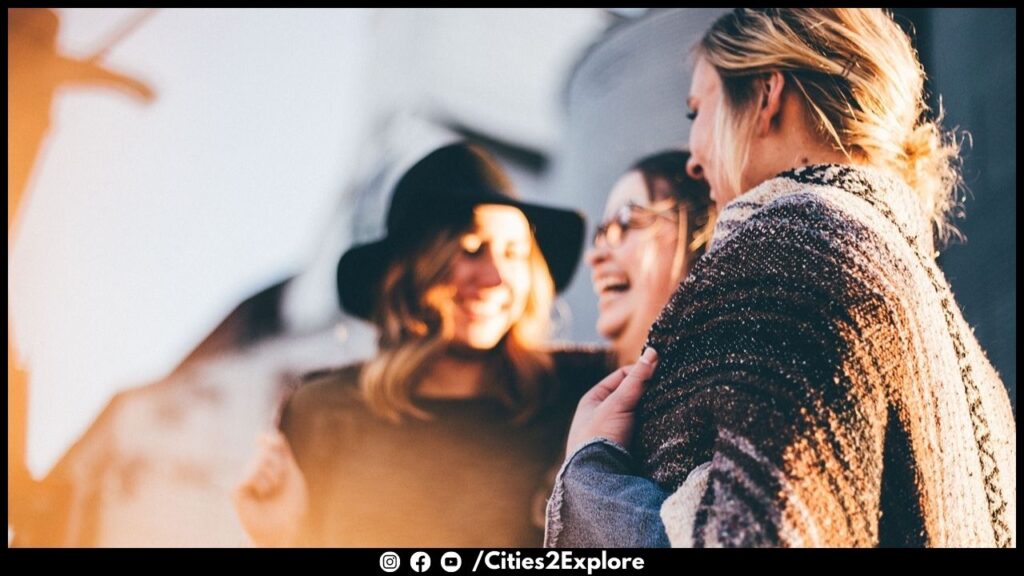In recent years, the trend of female solo travel has been steadily growing, with more women embracing the freedom and adventure of exploring the world on their own. While solo travel can be incredibly empowering, it’s crucial to prioritize safety and take necessary precautions to ensure a positive and secure experience. In this comprehensive guide, we will provide you with important travel safety tips specifically tailored for female solo travellers. By following these guidelines, you can enhance your personal safety, protect your belongings, and make the most out of your solo adventures with confidence.
Pre-Trip Preparation
Research and Planning

Before embarking on your solo journey, conducting thorough research and planning is key to ensuring a safe and enjoyable trip.
- Destination Research: Start by assessing the safety and security of your chosen destination. Familiarize yourself with local customs, laws, and cultural norms to avoid unintentionally offending locals or putting yourself at risk.
- Accommodation Selection: Choose accommodations that have positive reviews and a reputation for safety. Consider staying in female-friendly or women-only establishments, which often provide an extra layer of comfort and security.
- Itinerary Planning: Plan your routes and activities in advance, creating a well-thought-out itinerary. Share your itinerary with a trusted person back home, providing them with details of your accommodations, transportation, and planned activities.
Travel Documentation and Communication
Proper documentation and effective communication are essential for your safety and peace of mind.
- Passport and Visa: Ensure your passport is valid for the duration of your trip and make copies of important documents. Research visa requirements well in advance and obtain the necessary visas for your destination.
- Emergency Contacts: Compile a list of emergency contacts, including local authorities and the contact information for your embassy or consulate. Keep this information easily accessible, both in digital and physical formats.
Safety Tips Before and During Travel
Personal Safety Measures
Taking personal safety measures is crucial to minimize risks while traveling alone.
- Dress and Blend In: Respect local customs and dress codes to avoid drawing unnecessary attention to yourself. When visiting conservative areas, opt for modest attire that aligns with local norms.
- Carry Identification and Money Safely: Keep your identification and money in separate places, such as a money belt or hidden pouch. This way, even if one is misplaced or stolen, you’ll have backup identification and funds.
- Use Reliable Transportation: Choose reputable transportation options, such as licensed taxis or well-known rideshare services. Avoid traveling alone at night in unfamiliar or unsafe areas. If possible, research public transportation options and their safety records in advance.
Secure Your Belongings
Protecting your belongings is essential to avoid theft or loss during your solo travels.
- Secure Your Accommodation: Always lock doors and windows in your accommodation, even when inside. Use any safety features provided, such as safes or lockers, to store valuable items when you’re away.
- Protect Your Valuables: Keep your valuables out of sight and consider using secure bags or locks. Avoid displaying expensive jewelry or electronic devices that may attract unwanted attention.
- Backup Important Data: Make digital copies of important documents such as your passport, visa, travel insurance, and itinerary. Store them securely using encrypted cloud storage or email them to yourself. This way, you can access them from anywhere in case of emergencies or if physical copies are lost.
Personal Safety and Awareness
Remaining vigilant and aware of your surroundings is crucial for personal safety while traveling alone.
- Trust Your Intuition: Listen to your instincts and avoid situations or people that make you feel uncomfortable. Your intuition is a powerful tool for keeping yourself safe, so never ignore it.
- Stay Connected: Maintain regular communication with friends or family members back home. Inform them of your whereabouts, any changes to your plans, and check in with them periodically during your trip.
- Use Technology for Safety: Install safety apps on your phone that allow you to share your location with trusted contacts. Carry a portable charger to ensure your phone is always charged, providing you with a lifeline in case of emergencies.
Socializing and Interacting with Others

Meeting new people and engaging in social activities is one of the joys of solo travel. However, it’s important to do so cautiously and establish boundaries.
- Meeting New People: When meeting new people, opt for well-populated and public settings. Consider joining group tours or activities that allow you to meet fellow travellers in a safer environment.
- Be Mindful of Alcohol Consumption: Drink responsibly and be aware of your surroundings when consuming alcohol. Never leave your drink unattended and be cautious about accepting drinks from strangers.
- Setting Boundaries: Practice assertiveness and clearly communicate your boundaries. Trust your instincts and remove yourself from any situations that make you uncomfortable or raise concerns.
Dealing with Unforeseen Situations
While you can plan and prepare, unforeseen situations may still arise during your travels. Knowing how to handle them is essential for your safety and well-being.
- Emergency Situations: Familiarize yourself with the local emergency services and their contact numbers. Learn basic phrases in the local language to communicate during emergencies.
- Trustworthy Locals and Authorities: If you ever feel unsafe or require assistance, seek help from trusted locals or authorities. Approach police stations or tourist information centers for guidance and support.
- Health and Well-being: Prioritize your health and well-being by obtaining comprehensive travel insurance that covers medical emergencies and evacuation. Carry necessary medications and a basic first aid kit to address any unforeseen health issues.
Conclusion
As a female solo traveller, prioritizing your safety is paramount to enjoying a rewarding and empowering travel experience. By following these important travel safety tips, you can navigate the world with confidence and create unforgettable memories while staying safe. Remember, solo travel can be an incredible opportunity for personal growth and exploration, so embrace it fully while taking necessary precautions.
FAQs (Frequently Asked Questions)
Is it safe for women to travel alone?
While solo travel can be safe for women, it’s essential to take precautions and be aware of your surroundings. By following travel safety tips specifically designed for female solo travellers, you can mitigate risks and enhance your personal safety.
How do I choose safe accommodations as a solo female traveller?
When selecting accommodations, consider reputable establishments with positive reviews. Opt for female-friendly or women-only accommodations, as they often provide an extra level of security and comfort.
What should I do if I feel unsafe while traveling alone?
Trust your instincts and remove yourself from any situation that feels unsafe. Seek help from trustworthy locals, authorities, or tourist information centers. Always have emergency contact numbers readily available and communicate your concerns with family or friends back home.
How can I meet other travellers while staying safe?
Joining group tours or activities is a great way to meet fellow travellers in a safer environment. Opt for well-populated and public settings when socializing and be cautious about alcohol consumption.
Should I purchase travel insurance as a solo female traveller?
Yes, it’s highly recommended to purchase comprehensive travel insurance that covers medical emergencies and evacuation. This ensures you have financial protection and access to necessary healthcare services while traveling alone.
Read other interesting articles:
- Sail in Style on MV Ganga Vilas – Longest River Cruise in the World
- Garvi Gujarat Train : Ticket Price, Features, Destinations
- 11 Best Places to visit in Varanasi
- 11 Travel Essentials List You Need on Your Trip
- 7 Best Places to visit in Diwali Vacation in India
- How To Maintain A Healthy Lifestyle While Traveling: Your Ultimate Guide
- Golghar Patna – Facts, History, Timings
- 11 Best Places To Visit in Patna
- 9 Best places to visit in Ranchi | Ranchi Tourist Attractions
- 11 Best Places to Visit in Rishikesh – Exploring City of Yoga
- IRCTC Executive Lounge: Rates, Facilities & Benefits | Indian Railways
- Radhanagar Beach: Activities, Timings, Images & More
- Experience Royalty on Rails: Maharajas Express – The Luxury Train in India
- 11 Places to Visit in India in June: Beat the Heat and Explore!
- Buddha Smriti Park Patna: Find Inner Peace at the Heart of the City
- Explore the Pyramids of Giza: The Last Surviving Seven Wonders
- Exploring the Benefits of Traveling: Solo, Group, Health, and Educational Benefits
- Lepakshi Temple: A Jewel of Andhra Pradesh’s Heritage





